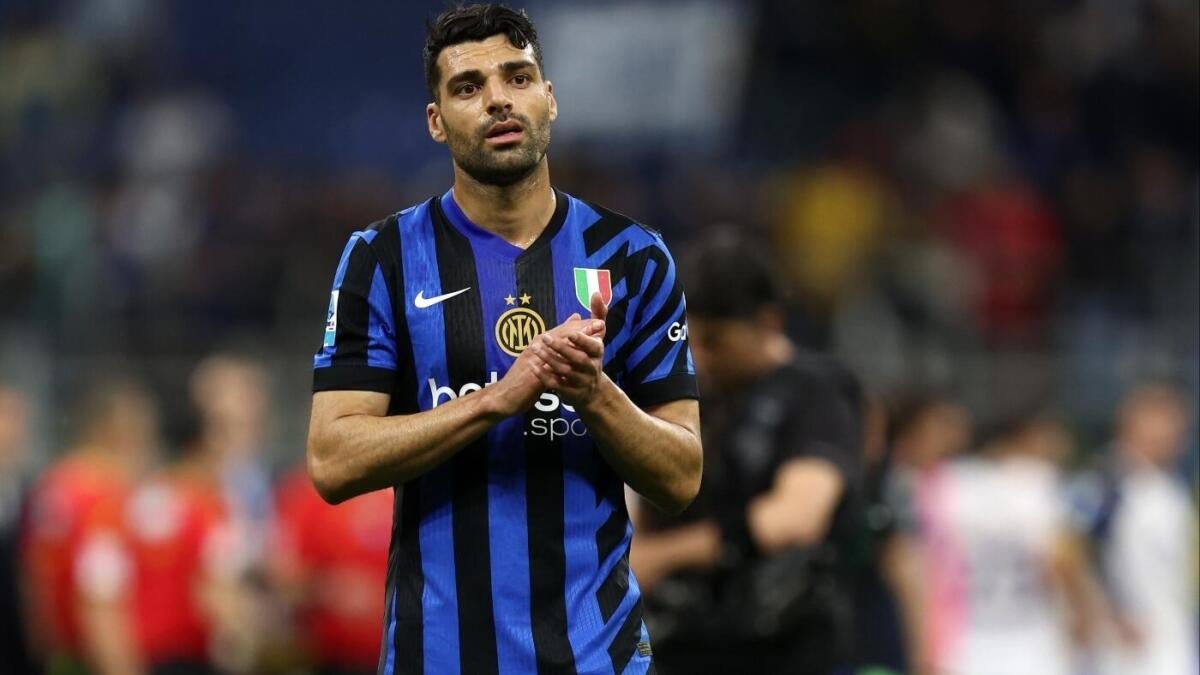When Geopolitics Sideline a Star: Mehdi Taremi’s Absence from Inter Milan’s Club World Cup Run
The unexpected absence of Mehdi Taremi from Inter Milan’s FIFA Club World Cup campaign is more than a sports story—it’s a compelling narrative where international relations and athletic ambitions collide. Trapped in Tehran due to the closure of Iranian airspace amid escalating regional conflict, Taremi embodies the profound vulnerabilities athletes face when geopolitical turmoil interrupts the global stage of sports.
The Disrupted Journey: Conflict Halts a Striker’s Flight
Mehdi Taremi’s predicament unfolded as he traveled home for Iran’s 2026 World Cup qualifiers, a duty undertaken by many international players balancing club and country commitments. What was intended to be a routine visit turned complicated fast: Israel and Iran’s escalating military exchanges prompted Iran to close its airspace. This drastic measure grounded all flights and left Taremi stranded, unable to rejoin Inter Milan in Los Angeles.
The stakes could not be higher: this closure forced Taremi to miss not only the opening match against Monterrey but likely the entire group stage of the tournament. Such a disruption exposes how regional security dilemmas directly affect international sports schedules, highlighting the fragility of sports logistics in times of conflict.
Inter Milan’s Tactical and Emotional Challenge
Taremi’s absence isn’t merely a missing jersey on the pitch; it reshapes Inter Milan’s tactical approach and morale. Known for his scoring prowess and creative attacking contribution, the Iranian forward’s presence is deeply woven into the Nerazzurri’s strategy.
The coaching staff and teammates face the daunting task of recalibrating their attacking formations without a key figure. Off the field, the club remains concerned not just for its competitive edge but for Taremi’s safety and psychological well-being. Behind the scenes, there are concerted efforts to secure any possible travel alternatives, although the ongoing volatility dims immediate hopes.
The Athlete’s Dilemma: Navigating National and Club Loyalties in Crisis
Mehdi Taremi’s situation starkly illustrates the complex dynamics international athletes must navigate. His return to Iran for World Cup qualifiers signals patriotism and professional obligation, but the sudden conflict-induced travel ban transformed his journey into an involuntary stasis.
Taremi reinforces his commitment to Inter Milan despite current circumstances, embodying the loyalty many players maintain even amid disruptions. Yet, the limbo he faces—caught between national duty and restricted movement—raises questions about how players’ careers can be abruptly altered by forces beyond sport.
Beyond the Pitch: The Intersection of Sports and Geopolitics
This incident spotlights a sobering reality: sports do not exist in isolation from global affairs. Geopolitical conflicts can ripple through the ecosystem of international competitions, from travel bans to security anxieties, reshaping who can participate and how events unfold.
For Inter Milan, losing a talented striker due to geopolitical strife reveals how modern athletics are intertwined with international politics. It also challenges clubs and governing bodies to consider robust contingency plans and support frameworks for players caught in geopolitical crossfires, emphasizing the need for heightened awareness and preparedness.
Awaiting Resolution: Hope Amid Uncertainty
Mehdi Taremi’s absence during Inter Milan’s Club World Cup run is a poignant reminder that sportsmanship sometimes bows to geopolitics’ harsh realities. As the club adjusts tactically and emotionally for his absence, they—and their fans—hold onto hope that escalating regional tensions will ease, enabling Taremi’s timely return.
This episode urges the football community to recognize and respond to the complex challenges athletes face when global conflicts intrude on the sporting arena. It underscores a broader narrative where the love of the game meets the unpredictability of world affairs, and where every player’s journey can be shaped by forces far beyond the stadium.
Taremi’s story remains a living testament to how deeply interconnected sports and geopolitics have become, offering a call for compassion, flexibility, and innovation when navigating these challenging crossroads.












